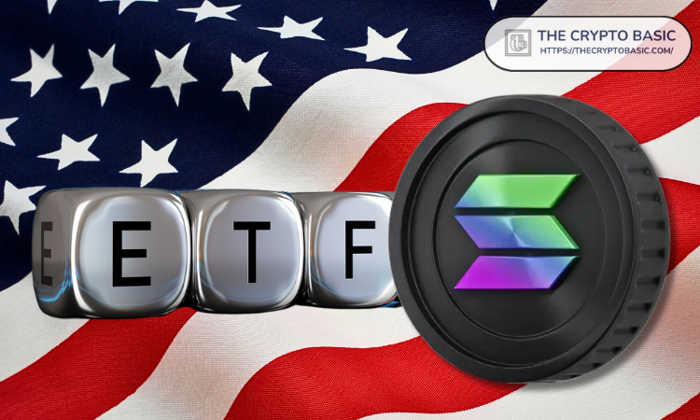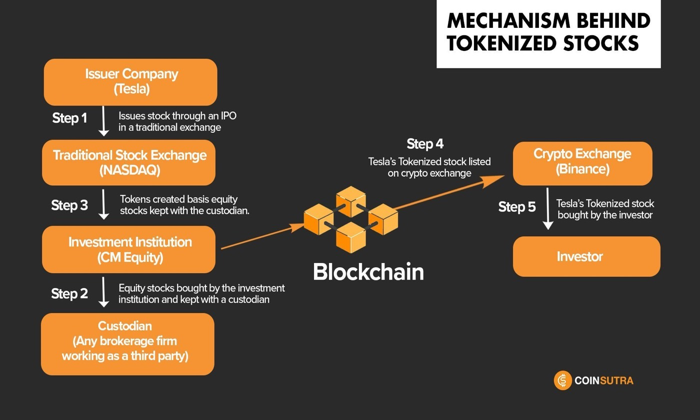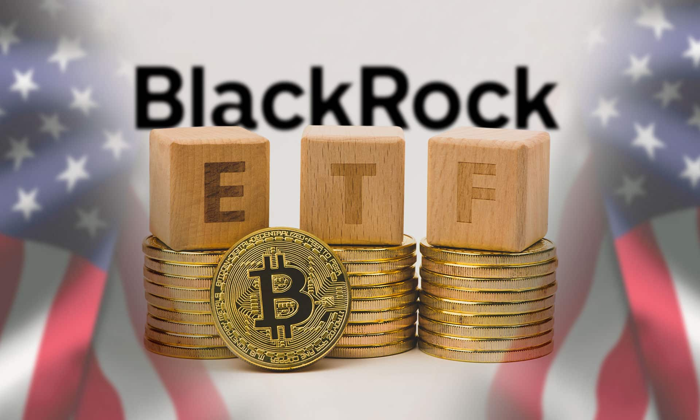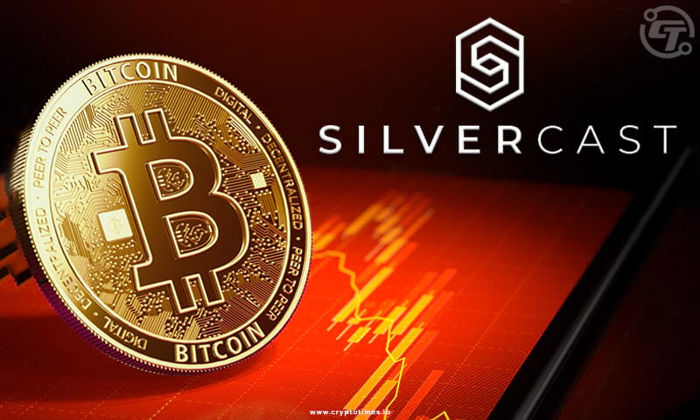Student loans DeFi represents a revolutionary intersection of traditional education financing and decentralized finance, poised to redefine how students manage their financial futures. As discussed by Yat Siu at Consensus Toronto, tapping into the $3 trillion global student loan market could unleash unprecedented DeFi growth, potentially quadrupling the total value locked (TVL) in the sector. Incorporating blockchain education into lending practices not only streamlines the loan process but also enhances accessibility for students, particularly those disadvantaged by conventional banking. This innovation could significantly boost cryptocurrency adoption among the youth, paving the way for a new wave of Web3 financial tools tailored for educational purposes. With platforms like Pencil Finance leading the charge, the prospect of crypto loans for students becomes not just a possibility, but a promising reality for the next generation of learners.
The concept of decentralized financing for educational expenses, often referred to as blockchain-based student financing, is gaining traction in the evolving financial landscape. Through innovative Web3 solutions, these financial instruments are designed to provide affordable and efficient options for students seeking loans. By leveraging cryptocurrency and decentralized applications, this model aims to disrupt the traditional student loan industry, enhancing accessibility and affordability. As interest in digital assets and blockchain technology continues to grow, the integration of student loans into the DeFi ecosystem could catalyze widespread changes in how educational funding is approached. This shift not only highlights the potential for financial inclusivity but also emphasizes the role of emerging technologies in reshaping educational investments.
The Potential Impact of Student Loans on DeFi Growth
Yat Siu, chairman of Animoca Brands, advocates for the integration of student loans into the decentralized finance (DeFi) space, predicting it could more than quadruple the total value locked (TVL) within this sector. With the global student loan market valued at approximately $3 trillion, even a modest shift of 10% towards blockchain-based solutions could revolutionize the landscape of DeFi. The infusion of traditional financial instruments into the crypto ecosystem not only enhances liquidity but also reflects a significant stride towards broader crypto adoption. By harnessing the capabilities of blockchain technology, student loans could facilitate a transparent and efficient lending process, ultimately fostering greater trust and participation in the crypto market among newcomers and existing users alike.
Furthermore, Siu’s insights underscore the transformative potential of student loans as a mechanism for engaging the next generation with decentralized financial services. By moving away from traditional banking structures and utilizing DeFi protocols, students can experience more accessible borrowing options. This transition could empower a new demographic that has historically faced barriers in acquiring educational funding. In effect, a DeFi-driven approach to student loans might not only yield financial benefits but could also contribute positively to the educational landscape, aligning with trends towards more democratized and inclusive educational financing.
Web3 Financial Tools: Revolutionizing Education and Loans
The advent of Web3 financial tools presents an exciting frontier for educating and supporting students regarding their financial futures. With platforms like Pencil Finance leading the charge in providing cryptocurrency-based loans specifically designed for students, there’s a growing momentum towards harnessing blockchain technology to empower learners. As Siu remarked, integrating these technologies into the education sector transforms how students engage with their finances, potentially leading to a generation that is not only crypto-savvy but also better prepared for the complexities of modern financial systems. This shift catalyzes the rise of innovative financial products that can serve as bridges for the unbanked populations in emerging markets like the Philippines and Indonesia.
Moreover, the connection between Web3 financial tools and student loans extends beyond mere accessibility; it also encourages a fundamental shift in the perception of traditional financial services. Students receiving loans on the blockchain stand to benefit from lower operational costs and increased efficiency, fostering an environment where financial education and literacy can thrive. As these tools become integrated into educational institutions, they not only present practical solutions for obtaining funds but also promote a culture of responsible financial management within the community. This nurturing of a pro-crypto mindset is essential for the long-term success of DeFi, setting the stage for a more inclusive financial ecosystem.
Cryptocurrency Adoption Through Student Loans
Students represent a unique and highly impactful demographic when it comes to cryptocurrency adoption. As highlighted by Siu, offering student loans via blockchain not only provides immediate financial relief but also serves as an introduction to the cryptocurrency ecosystem. As these individuals engage with crypto loans and learn about decentralized financial principles, they are more likely to embrace broader cryptocurrency adoption as they progress in their professional and personal lives. This transformational experience can effectively shift mindset from traditional finance to embracing digital assets, paving the way for a future where cryptocurrency is the norm rather than the exception.
Moreover, facilitating access to loans through crypto channels may significantly enhance financial literacy among younger generations, particularly those excluded from traditional banking services. By utilizing blockchain-based solutions, students can grasp fundamental financial concepts while benefitting from innovative repayment options that align with their unique circumstances. This not only equips them with essential skills needed in today’s economy but also lays the groundwork for a community more accustomed to navigating the complexities of DeFi and cryptocurrency. Ultimately, this could lead to a more robust and informed participant base in the cryptocurrency market.
Blockchain Education: Bridging the Gap in Financial Literacy
The integration of blockchain technology into student financing signifies a crucial educational opportunity that can significantly impact financial literacy among young individuals. By directly involving students in the blockchain process, they not only receive funding but also gain practical knowledge in a rapidly evolving space. Programs designed around blockchain education can empower students to become adept in navigating not just student loans but the broader spectrum of Web3 financial tools. This knowledge can act as a springboard for future careers in the tech and finance sectors, as students become more familiar with essential concepts like smart contracts, decentralization, and cryptocurrency.
Furthermore, as blockchain education continues to expand, educational institutions have the opportunity to cultivate a new generation of financially savvy individuals who understand the importance of decentralized finance. Learning in a practical setting—where theoretical knowledge is paired with real-world applications like student loans—can demystify cryptocurrency and make it more approachable for students. As students engage with these concepts directly, they become advocates for the technologies that enable them, contributing to broader societal acceptance and the mainstream adoption of cryptocurrencies and DeFi.
The Future of Student Loans in a Decentralized Economy
Looking ahead, student loans will likely play a pivotal role in shaping the future of a decentralized economy. As more institutions and fintech companies look to adopt blockchain solutions for traditional financial services, the landscape for education financing is set for a massive overhaul. This change not only affects the mechanics of borrowing and lending but also fundamentally alters the relationship students have with money and financial institutions. As highlighted by Siu, the shift into this more open and transparent ecosystem could usher in an era of unprecedented access to financial resources for students globally, particularly those in underserved communities.
In this decentralized economic model, the promise of student loans becomes a catalyst for further innovations within the DeFi space. Such advancements are not only beneficial for students but also lead to a wider acceptance of cryptocurrencies as valuable financial instruments. Driven by the demand for flexibility and accessibility, blockchain solutions could further enhance the structure of student financing, leading to competitive rates and beneficial terms that promote sustainability in student debt. Ultimately, the future of student loans can act as a microcosm of the larger DeFi narrative, illustrating the potential to disrupt and redefine traditional financial paradigms.
Understanding the Blockchain Loan Ecosystem for Students
To navigate the emerging blockchain loan ecosystem, students must first understand the underlying technologies that make it all possible. With the rise of crypto loans, it is essential for young borrowers to familiarize themselves with the workings of decentralized protocols and how they differ from conventional lending processes. This includes comprehending smart contracts, which automate transaction executions without the need for intermediaries, significantly streamlining the loan process. By educating themselves about these concepts, students can make informed decisions that best suit their financial situations, ultimately maximizing the benefits that blockchain loans offer.
Additionally, knowledge of the liquidity and security measures inherent in blockchain technology is crucial for students engaging with crypto finance. Understanding the role of decentralized networks helps to demystify the concerns many may have regarding volatility and regulatory scrutiny surrounding cryptocurrencies. The learning curve can be steep, but as institutions adopt blockchain education, students will have access to tailored resources that elucidate these complexities. Becoming proficient in these areas not only positions students for successful engagement with financial technology but also empowers them to become proactive participants in the growing DeFi movement.
How DeFi Is Challenging Traditional Student Loan Models
Decentralized finance is poised to disrupt traditional student loan models by introducing innovative approaches to lending that prioritize accessibility and efficiency. In traditional systems, lengthy application processes and rigid requirements often deter eligible students from obtaining the funds they need. In contrast, DeFi loan models leverage blockchain technology to simplify these processes, allowing users to secure funding with minimal bureaucracy. By embracing this evolution in financial service offerings, institutions can provide students with more favorable terms, fostering financial inclusion and empowering a generation committed to pursuing higher education.
The inherent characteristics of DeFi, such as transparency and decentralization, challenge the conventional alignment of student loans with mainstream banking. Blockchain-based loans allow for the reallocation of risk and cost savings to benefit borrowers. This alternative system encourages students to engage in financial planning and responsibility, with mechanisms that can enable better monitoring of loan repayment through smart contract implementations. As DeFi continues to evolve, it stands to redefine the standards of student financing, creating a landscape that operates on the principles of equity, inclusiveness, and greater financial literacy.
Advancements in Web3 Education and Its Implications for Students
Web3 education initiatives are rapidly gaining traction, showcasing a vital connection between technological advancements and their application in the educational landscape. As industry leaders like Siu advocate for the integration of blockchain and cryptocurrency into educational settings, students become not just consumers of knowledge but active participants in reshaping their financial futures. The implications of such advancements extend beyond classroom walls, providing students access to a dynamic array of financial services tailored directly to their needs. Through collaboration with platforms dedicated to blockchain education, students can gain firsthand experience that bridges theory and practical application.
Moreover, the evolution of educational institutions aligning with Web3 principles cultivates a generation poised for innovation. Students learn the skills required to operate within this new economy, embracing concepts such as decentralized finance and asset management. The shift from traditional education to one that includes comprehensive blockchain studies empowers individuals to enhance their career prospects, as more sectors adapt to accommodate Web3 technologies. This momentum not only benefits students looking to enter the job market but also contributes to a broader understanding of the impact that digital finance can have on economies and societies in the long run.
Frequently Asked Questions
How could student loans in DeFi impact blockchain education?
Integrating student loans into decentralized finance (DeFi) can enhance blockchain education by offering students affordable and efficient financing options. Web3 financial tools will provide students with blockchain-based loans, allowing them to participate in the crypto ecosystem. This exposure can promote not only financial literacy but also deeper understanding of decentralized technologies.
What is the potential impact of DeFi growth on the student loan market?
The student loan market, valued at $3 trillion globally, represents a significant opportunity for DeFi growth. By transitioning even a small fraction of these loans to the blockchain, we could quadruple the total value locked (TVL) in DeFi, demonstrating the market’s potential for innovation and expansion.
What are crypto loans and how can they benefit students?
Crypto loans are an emerging financial option that allows students to borrow funds secured by cryptocurrency. These loans can offer lower interest rates and more flexible terms compared to traditional loans, making it easier for students to access necessary funding while integrating them into the growing world of decentralized finance.
How can blockchain technology enhance the student loan repayment process?
Blockchain technology can streamline the student loan repayment process through on-chain transactions that are transparent, secure, and cost-effective. This reduces administrative burdens and allows for faster processing, making it easier for students to manage their debt and engage with financial tools within the DeFi ecosystem.
Why is cryptocurrency adoption important for unbanked students?
Cryptocurrency adoption is crucial for unbanked students as it provides them with access to financial services that were previously unavailable. By utilizing blockchain-based student loans, these individuals can participate in the financial system directly, fostering financial inclusion and economic empowerment.
What role do Web3 financial tools play in the future of student loans?
Web3 financial tools are set to revolutionize student loans by offering decentralized and accessible lending options. They can provide innovative solutions that address the shortcomings of traditional financing, enabling more students to secure funding while fostering a broader cryptocurrency adoption in education.
How is Animoca Brands contributing to the DeFi growth in the student loan sector?
Animoca Brands is actively contributing to DeFi growth in the student loan sector through investments in startups like Pencil Finance, which focus on offering crypto-native student loans. Their efforts aim to enhance financial accessibility for students in developing regions and help integrate them into the broader crypto ecosystem.
What are the implications of moving student loans to the blockchain for the DeFi industry?
Moving student loans to the blockchain could result in significant implications for the DeFi industry, including increased liquidity and TVL. This transition could lead to more innovative lending solutions, greater competition among financial providers, and enhanced engagement with young borrowers who will become lifelong participants in crypto finance.
How does student loans DeFi align with the future of education?
Student loans DeFi aligns with the future of education by integrating financial infrastructure with learning. As education continues to evolve, particularly through platforms utilizing Web3 technology, blockchain-based loans will provide students with the resources they need while promoting financial literacy and participation in the decentralized economy.
| Key Point | Details |
|---|---|
| Significant Impact on DeFi | Yat Siu claims that bringing student loans to blockchain could increase DeFi’s total value locked (TVL) by over four times. |
| Untapped Market | The global student loan market is worth $3 trillion, which presents a substantial opportunity for the crypto sector. |
| Integration into Crypto Ecosystem | Students receiving blockchain loans would become part of the crypto ecosystem, facilitating ongoing participation and adoption. |
| Expansion and Investment | Animoca Brands has invested in Pencil Finance, focusing on crypto-native student loans, starting in the Philippines and Indonesia. |
| Web3 as a Learning Tool | Education is seen as a critical application for Web3, with the potential to transform how learning and financial systems interact. |
Summary
Student loans DeFi has the potential to drastically reshape the decentralized finance landscape by integrating a $3 trillion market into blockchain technology. Yat Siu’s insights illustrate that tapping into just a fraction of this market could quadruple the TVL across all of DeFi, promoting widespread cryptocurrency adoption, especially among the youth. By providing accessible financial tools within educational frameworks, Web3 could pave the way for a more inclusive and engaged crypto ecosystem. This innovation not only spells opportunity for students but also positions education at the forefront of the next wave of technological advancement.
In the rapidly evolving world of decentralized finance (DeFi), the introduction of student loans DeFi presents a transformative opportunity that could significantly reshape the landscape of financial education. Yat Siu, chairman of Animoca Brands, passionately addressed this potential during a recent conference, highlighting how integrating student loans into blockchain technology could unlock a staggering increase in total value locked (TVL) within DeFi. With the global student loan market valued at an impressive $3 trillion, moving even a fraction onto the blockchain could catalyze unprecedented DeFi growth. This new approach not only promises to enhance accessibility but also to foster a culture of cryptocurrency adoption among younger generations and unbanked populations alike. By leveraging innovative Web3 financial tools, the ambitions surrounding student loans DeFi could pave the way for more efficient, transparent, and inclusive financial solutions for students worldwide.
Exploring alternative financing options within the decentralized finance realm, educational loans harness the potential of blockchain technology to provide accessible financial support to students. As articulated by industry leaders, this initiative envisions a future where lending practices are not only more efficient but also readily integrate into the daily lives of young learners. By democratizing access to crypto loans, this shift could seamlessly introduce students to the benefits of cryptocurrency, thereby laying the foundation for broader financial literacy. Furthermore, the rise of decentralized applications promises to revolutionize how educational funding is perceived and managed, echoing the transformative impact of platforms like PayPal and Venmo in underserved communities. The confluence of blockchain education and innovative financial solutions like these embodies the essence of Web3, driving forward a new ecosystem ripe with opportunity.















